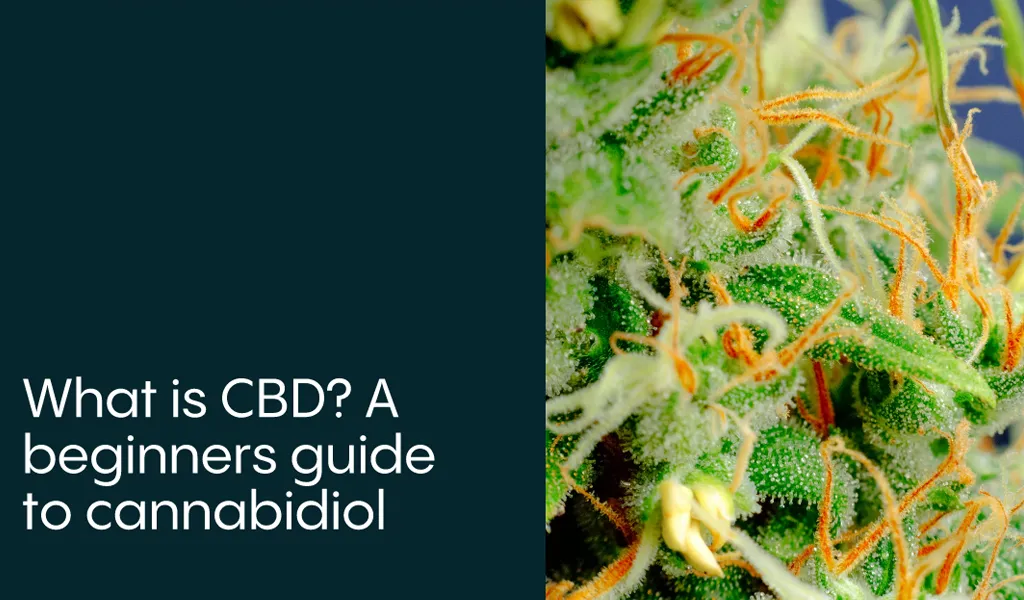In recent years, cannabidiol (CBD) has gained significant traction as a natural remedy for various health concerns. From anxiety and chronic pain to sleep disorders and inflammation, CBD is celebrated for its potential therapeutic benefits. However, with the proliferation of products on the market, navigating the world of CBD can be overwhelming for beginners. If you’re curious about incorporating CBD into your wellness routine but don’t know where to start, this comprehensive guide will walk you through the essentials you need to know before making your first purchase.
What is CBD?
CBD is a compound found in the cannabis plant, particularly in hemp. It is one of over a hundred cannabinoids, which are chemical compounds that interact with the body’s endocannabinoid system (ECS). Unlike THC (tetrahydrocannabinol), the most well-known cannabinoid, CBD is non-psychoactive, meaning it does not produce the “high” typically associated with cannabis use. This characteristic makes CBD appealing to those seeking the potential benefits of cannabis without the mind-altering effects.
The Endocannabinoid System
The endocannabinoid system is a complex cell-signaling system in the body that plays a crucial role in maintaining homeostasis—essentially keeping the body in balance. It consists of three main components:
- Endocannabinoids: These are naturally occurring compounds produced by the body that bind to cannabinoid receptors.
- Cannabinoid Receptors: Primarily CB1 and CB2 receptors, these are located throughout the body and are involved in various physiological processes, including pain perception, immune response, and mood regulation.
- Enzymes: These break down endocannabinoids once they have fulfilled their purpose.
CBD interacts with the ECS, potentially helping to regulate various bodily functions, which is why it’s being studied for its therapeutic applications.
Potential Benefits of CBD
While research on CBD is still evolving, a growing body of evidence suggests that it may offer various health benefits. Here are some of the most commonly reported benefits:
- Anxiety and Stress Relief: Many users turn to CBD for its calming effects. Preliminary studies indicate that CBD may help reduce anxiety by interacting with serotonin receptors in the brain.
- Pain Management: CBD may provide relief from chronic pain conditions, including arthritis and neuropathic pain. Its anti-inflammatory properties are believed to play a key role in this benefit.
- Improved Sleep: People struggling with sleep disorders, such as insomnia, often report better sleep quality after using CBD. Its calming effects may help individuals fall asleep faster and stay asleep longer.
- Skin Health: CBD’s anti-inflammatory and antioxidant properties may benefit those with skin conditions like acne, eczema, or psoriasis. It may help soothe irritated skin and promote a more balanced complexion.
- Neuroprotective Properties: Some studies suggest that CBD may have neuroprotective effects, potentially benefiting individuals with conditions like epilepsy and multiple sclerosis.
- Heart Health: Research indicates that CBD may have positive effects on heart health by reducing blood pressure and preventing heart damage.
While these potential benefits are promising, it’s important to note that individual responses to CBD can vary. More research is needed to fully understand its effects and the mechanisms behind them.
Types of CBD Products
As you explore the world of CBD, you’ll encounter various products, each with its own method of consumption and benefits. Here’s a breakdown of the most common types of CBD products available:
- CBD Oils and Tinctures: These are concentrated extracts that can be taken sublingually (under the tongue) for fast absorption. They come in a variety of strengths and flavors.
- CBD Capsules and Softgels: Convenient and easy to dose, these products are pre-measured and ideal for those who prefer a familiar method of consumption. They may take longer to take effect compared to oils due to the digestive process.
- CBD Edibles: These include gummies, chocolates, and beverages infused with CBD. Edibles offer a tasty way to consume CBD, but like capsules, they require digestion before effects are felt.
- CBD Topicals: Creams, balms, and lotions containing CBD can be applied directly to the skin for localized relief of pain or inflammation. They are ideal for targeting specific areas.
- CBD Vapes: Inhalation of CBD vape pens or e-liquids allows for rapid absorption into the bloodstream, providing quick effects. However, vaping may not be suitable for everyone due to potential lung health concerns.
- CBD Isolate: This is pure CBD without any other cannabinoids or compounds from the hemp plant. It’s often available in powder or crystalline form and can be used in various recipes or added to other products.
- Full-Spectrum and Broad-Spectrum CBD: Full-spectrum products contain all cannabinoids, including trace amounts of THC (typically below 0.3%), while broad-spectrum products contain multiple cannabinoids without THC. These options are thought to enhance the “entourage effect,” where the various compounds work synergistically for enhanced effects.
Choosing the Right CBD Product
Selecting the right CBD product can be challenging, especially for beginners. Here are some key factors to consider when making your choice:
- Determine Your Needs: Consider why you want to use CBD. Are you seeking relief from anxiety, pain, or sleep issues? Understanding your goals will help you select the most appropriate product.
- Start Low and Go Slow: If you’re new to CBD, it’s advisable to start with a low dose and gradually increase it until you find the amount that works best for you. Every individual’s body is different, and finding the right dosage may take some time.
- Research Brands: Look for reputable brands that prioritize quality and transparency. Read reviews, check their websites for information about sourcing, extraction methods, and third-party testing.
- Read Labels: Always check the product label for the CBD concentration, additional ingredients, and the type of CBD (full-spectrum, broad-spectrum, or isolate). This information will help you understand what you’re consuming.
- Consult a Healthcare Professional: If you have any pre-existing medical conditions or are taking medications, it’s essential to consult with a healthcare provider before starting CBD. They can provide guidance on potential interactions and appropriate dosages.
Dosing CBD: What You Need to Know
Finding the right dose of CBD can be a bit of trial and error, as individual responses vary widely. Here are some guidelines to help you determine your optimal dosage:
- Start Small: Begin with a low dose, typically around 5-10 mg of CBD per day. This allows you to assess how your body responds to the compound without overwhelming it.
- Monitor Your Response: Keep track of how you feel after taking CBD. Pay attention to changes in symptoms, side effects, or overall well-being. This can help you gauge whether you need to adjust your dosage.
- Gradually Increase: If you don’t experience the desired effects after a week or so, consider gradually increasing your dose by 5 mg at a time. Continue this process until you find the dose that works best for you.
- Consider Your Body Weight: Some experts suggest using a weight-based formula to determine your dosage. A common recommendation is to take 1-6 mg of CBD for every 10 pounds of body weight. For example, a person weighing 150 pounds might start with a dose between 15-25 mg.
- Frequency of Use: The frequency with which you take CBD can also affect its effectiveness. Some people prefer taking it once or twice daily, while others might find benefits in taking it as needed.
- Be Patient: It may take some time to find the right dosage and experience the full benefits of CBD. Don’t rush the process; allow your body to adjust and monitor your progress.
Potential Side Effects of CBD
While CBD is generally well-tolerated, some individuals may experience side effects. Here are some common ones to be aware of:
- Drowsiness or Fatigue: Some users report feeling sleepy or fatigued after taking CBD, particularly at higher doses.
- Dry Mouth: CBD can cause a dry mouth sensation, which can be alleviated by drinking water.
- Changes in Appetite: Some people may experience an increase or decrease in appetite after using CBD.
- Gastrointestinal Issues: In rare cases, CBD may cause gastrointestinal discomfort, including diarrhea or nausea.
- Interaction with Medications: CBD may interact with certain medications, particularly those metabolized by the liver. Consult with a healthcare provider if you are taking medications to ensure there are no potential interactions.
Legal Considerations for CBD
The legal status of CBD can vary by country and state, making it essential to understand the regulations in your area. In the United States, the 2018 Farm Bill legalized hemp-derived CBD products containing less than 0.3% THC at the federal level. However, some states have their own regulations regarding the sale and use of CBD.
When purchasing CBD products, it’s crucial to ensure that they comply with local laws. Research your state’s regulations and verify that the products you’re considering are legally compliant.
Where to Buy CBD
With the growing demand for CBD, a plethora of options are available for purchasing CBD products. Here are some tips for finding reputable sources:
- Online Retailers: Many brands sell their products directly through their websites, providing detailed information about their sourcing, extraction methods, and third-party testing. This can be a convenient way to explore a wide variety of products.
- Health Food Stores: Local health food stores or specialty wellness shops often carry a selection of CBD products. This allows you to speak with knowledgeable staff who can provide recommendations based on your needs.
- Pharmacies: Some pharmacies have begun to stock CBD products. If you choose this option, look for products from reputable brands.
- Farmers’ Markets: In some areas, local farmers’ markets may feature vendors selling homemade or small-batch CBD products. This can be a way to support local businesses while exploring unique offerings.
- Avoid Disreputable Sources: Be cautious of low-quality products sold at gas stations or convenience stores. These products may not be adequately tested or may contain harmful additives.
Conclusion: Making Informed Choices
As a beginner in the world of CBD, it’s essential to approach your journey with knowledge and caution. Understanding what CBD is, its potential benefits, the types of products available, and how to choose and dose them will empower you to make informed decisions. Always prioritize quality by selecting reputable brands and consulting with a healthcare professional if you have any questions or concerns.
CBD has the potential to enhance your wellness routine, but individual responses can vary. Take the time to experiment and find what works best for you. With patience and the right information, you can explore the benefits of CBD safely and effectively, paving the way for a healthier, more balanced lifestyle.


